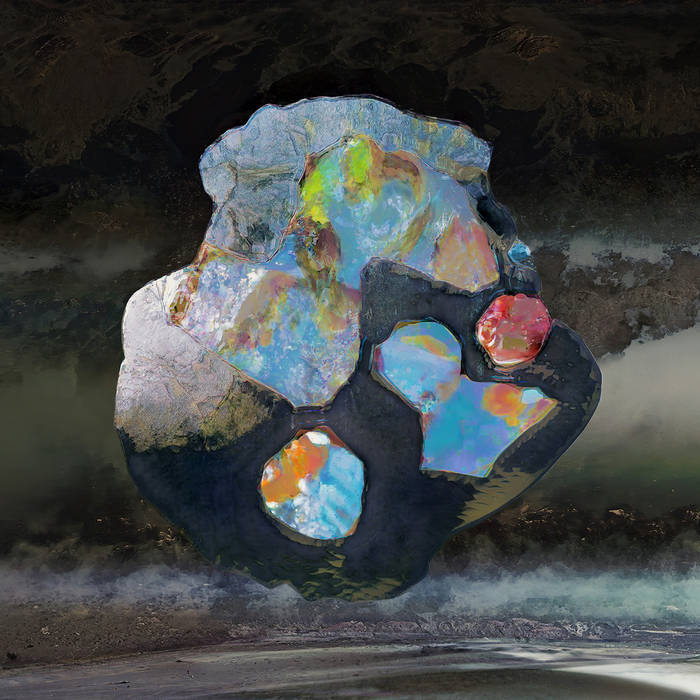Shamir – Heterosexuality
Earlier this year, we pegged Shamir’s eighth album, Heterosexuality as one of our most anticipated albums of the year. Over the past few years, the Philadelphia born singer-songwriter has been rising as a powerful new voice in alt-pop. As his Bandcamp bio makes clear; “Shamir is Shamir and remains Shamir through and through, no matter what the universe puts him through.” Unflinchingly himself, Shamir’s refusal to bend to normative standards or trends has made him one of the most intriguing artists on the horizon. With the release of the singles that prefaced Heterosexuality, it felt like Shamir had come to an essential point in the process of his becoming. Reckoning with matters of gender, sexuality, and queer identity, it appears Shamir has unlocked a new phase of being that reveals an artist more in tune with himself than before. Somehow, he has become braver. Finally here in full form, Heterosexuality offers our first complete look at the result of this rebirth.
The sound is immediately evolved, and a marked departure from the soft-rock and country-informed bedroom pop of 2019’s Be the Yee, Here Comes the Haw. On Heterosexuality, Shamir expands his sound in the direction of 90’s industrial, trip-hop, and synthpop. There’s touches of post-punk and New Wave, and a more definite embrace of pop sensibilities in his songwriting. It’s his most distinct evolution to date and it’s echoed in the imagery. Gone are the acid pink braids, eyeliner, and leather embellishments. Instead, Shamir presents himself as almost natural; draped in fabric and sporting antlers with hooves that give him the aura of a Pagan deity. Gay Agenda opens the album with crunchy, industrial beats that glitch under Shamir’s gentle yet fierce vocal delivery of lines like “I’ll see you in Hell / I’m bringing the heat.” Abomination chugs with a similar energy, featuring Shamir rapping along with a beat that pulls from post-punk and noisecore. The album is front-loaded with Heterosexuality’s heaviest material. Post Abomination, the music turns toward brighter sentiments. Stability is a 90’s power ballad in the vein of Jewel, while the shiny, optimistic breakbeats and bubbly electric guitar riffs of Caught Up recall Madonna’s Ray Of Light. Father and closing track Nuclear are late standouts. Father is a sparse, quiet ballad sun over strummed guitar chords and softly warping washes of ambient synths in the distance. The arrangement of the track is magical, with both its organic and electronic elements bubbling ever so slightly to allow Shamir’s voice to soar, peaking at the track’s climax in waves of rapturous drone synths and a clattering breakbeat that ricochets in the negative space. Meanwhile, Nuclear is a soulful and loungey jazz cut that floats along with a breezy, sunny buoyancy. While the choices are striking for Shamir, the album’s production is its biggest flaw. The lo-fi bedroom aesthetic and approach has become a signature for the artist, but it’s less effective here when dealing with layers of electronic distortion and breakbeats compared to acoustic guitars and drums.
Download & stream Heterosexuality
Thematically, Heterosexuality finds itself occupied with nihilism and a tendency for self-destruction. As an inquiry into queer frustration, Shamir often lands on self-deprecation or ideations of self-harm. It’s a dark take, but also one that’s poignantly real. Following his debut several years ago, the media would constantly barrage Shamir with questions about his gender identity, an inquisition which detracted from the music and traumatised Shamir into believing the media was creating a certain kind of perception about him. This trauma is what Shamir confronts on Heterosexuality, and he’s clear about the root: himself. While the media can be held accountable for their attack on Shamir, for him the lived experience was asking why the attack was happening in the first place and finding himself to be the problem. “I think this record is about society’s problem with me,” he said about Heterosexuality, and the record is very much a reckoning with the self-hatred that ensued from his trauma.
Perhaps too often, queerness is sold as a fantasy when in can in fact be a very real and isolating experience. The danger in Shamir’s thesis is obvious. These somewhat suicidal asides could be chalked up to glorification, and in turn risks sending the wrong message. But truthfully, there’s a journal-like quality to how Shamir writes on the record that makes it feel as if he’s always risking telling us a secret, allowing us in on some of his most intimate thoughts and fantasies. Unlike most representations of queer pain and self-harm in popular media, Shamir’s is a first hand account that’s unfiltered through any sort of cis-gaze. Heterosexuality confronts the more complex sides of Shamir head first; untangling the oft difficult conversations and inherent fears that surround gender identity and sexuality. It’s easy to feel ‘non’ existent when non-binary, and it’s this conundrum that Shamir grapples with the most on the album. Yes, it may bring forth some grotesque thoughts and ideations of death but the experience of being other is not pretty. It’s abject, confusing, and complex and there is bravery in how ardently Shamir sings his truth.
Listen to Abomination from Heterosexuality below.
Follow Shamir
Facebook | Twitter | Instagram



